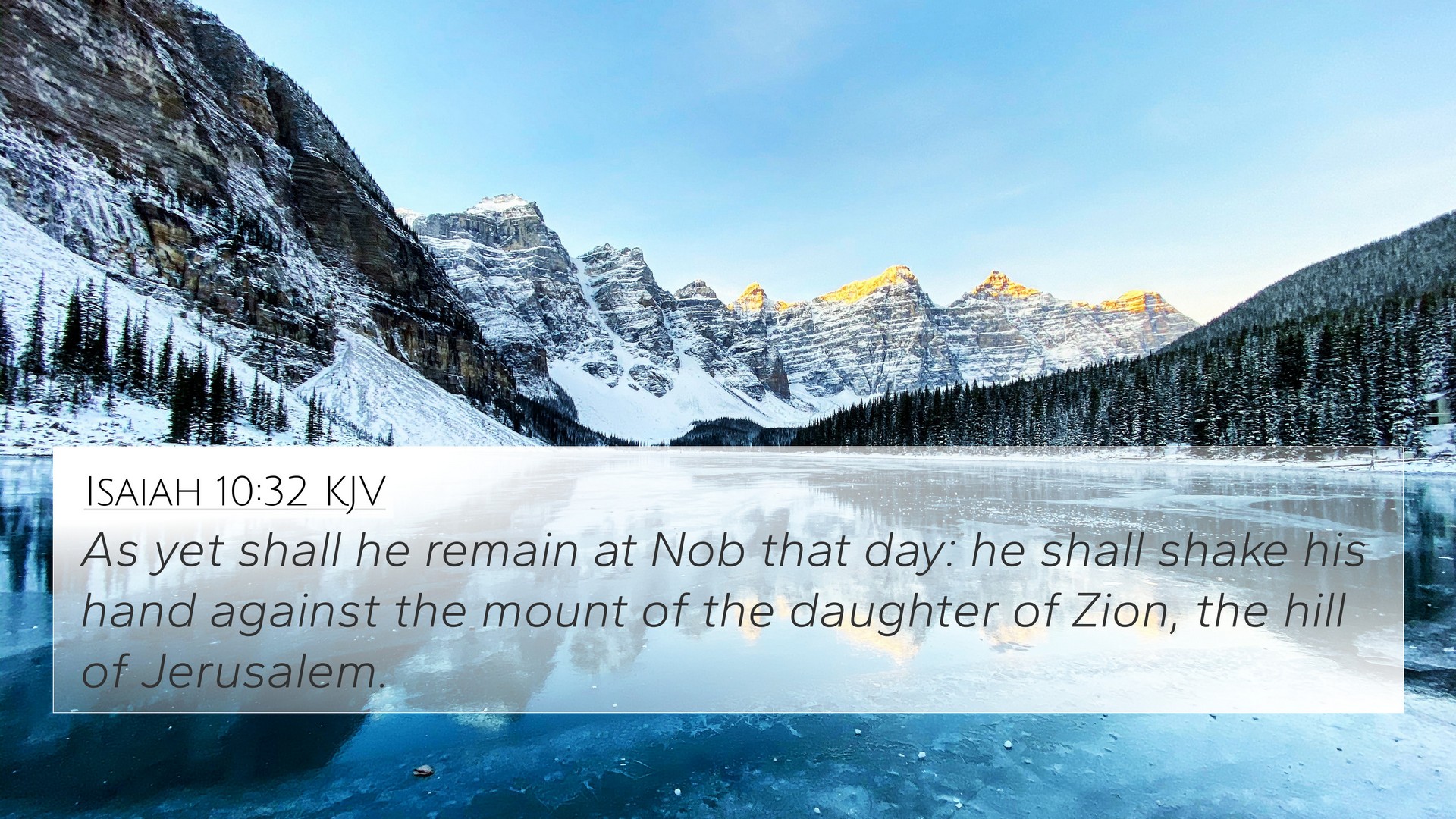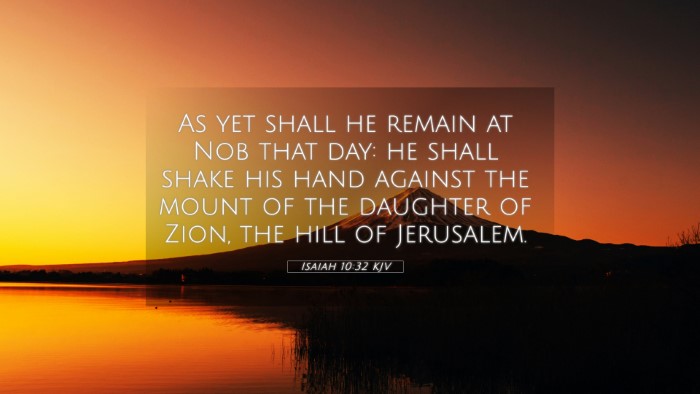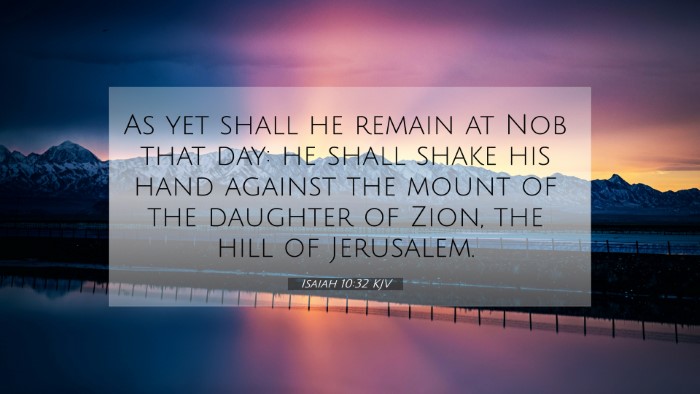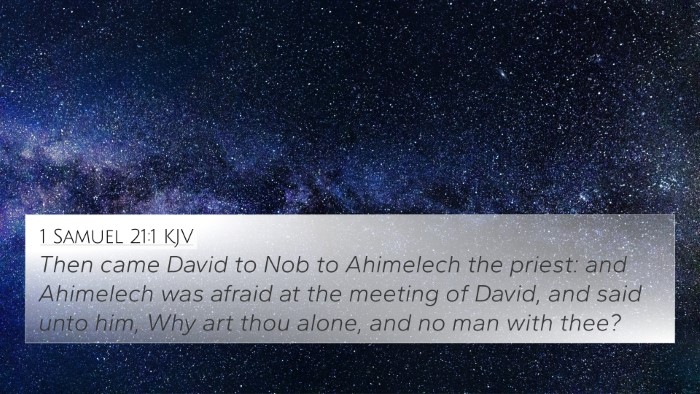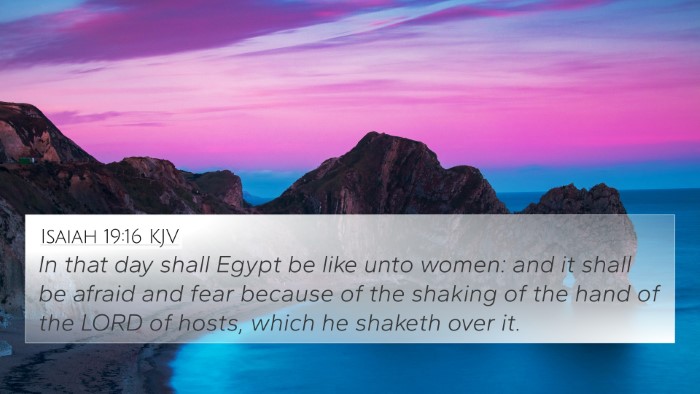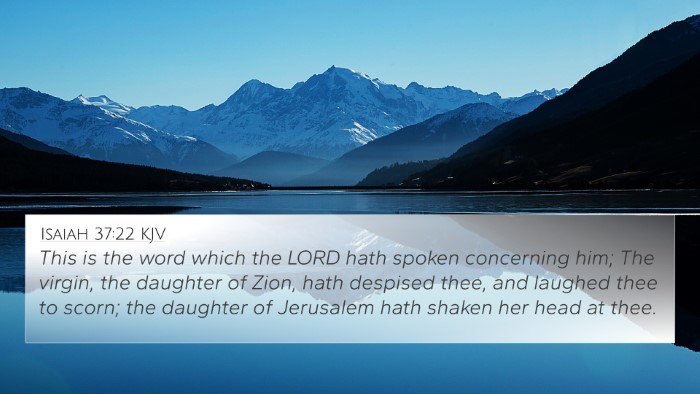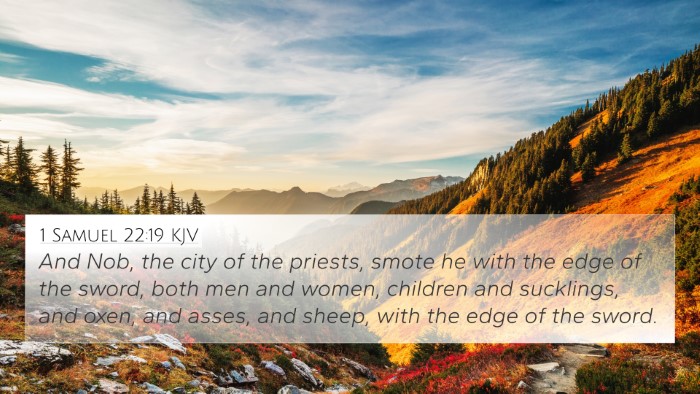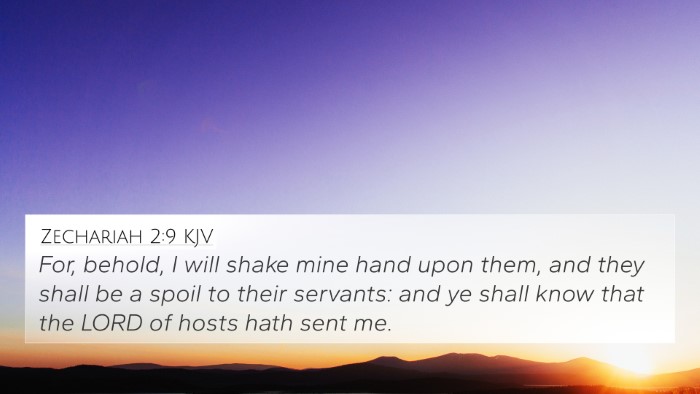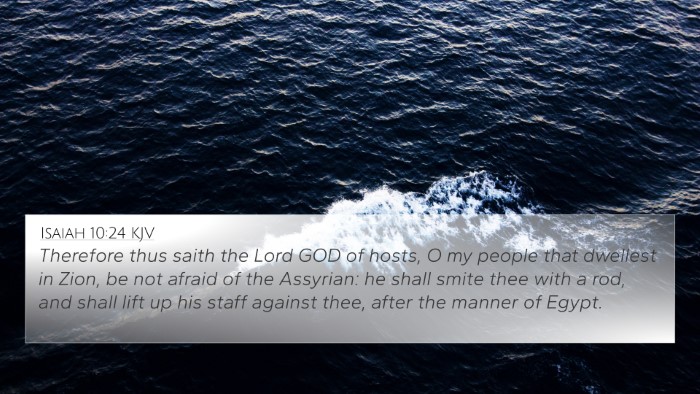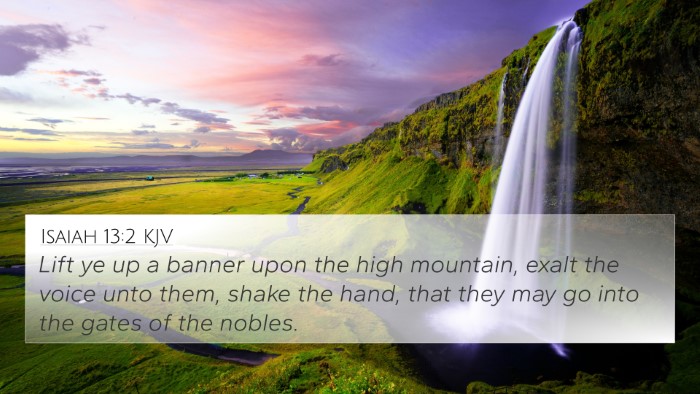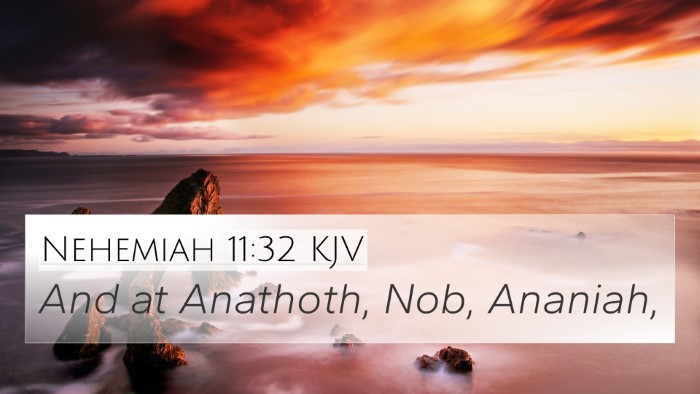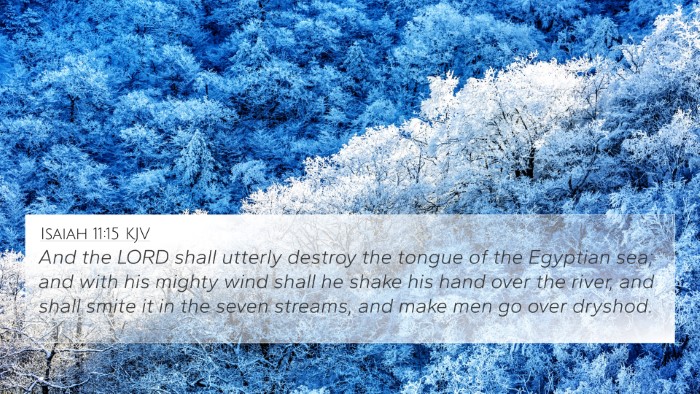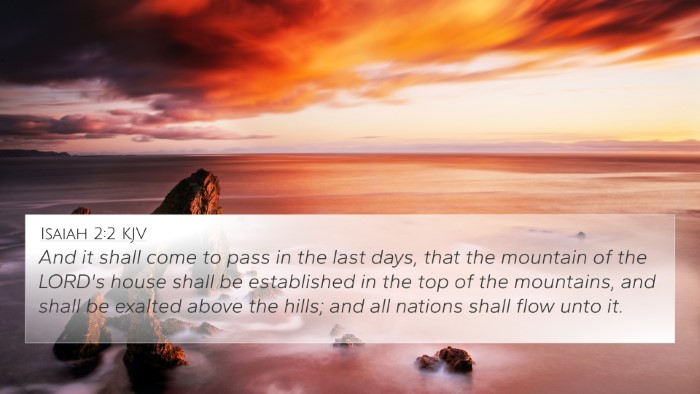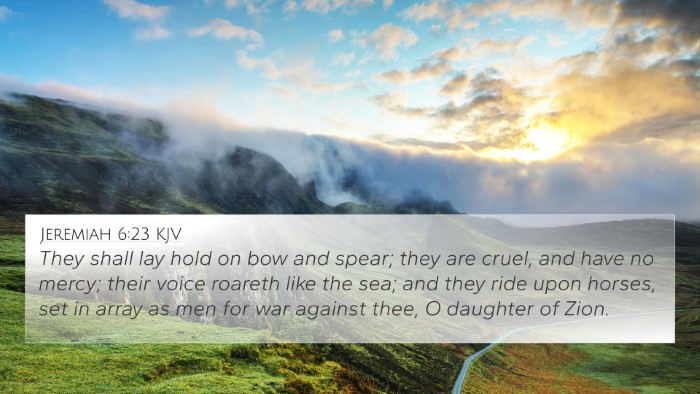Understanding Isaiah 10:32
Isaiah 10:32 states: "As yet shall he remain at Nob that day: he shall shake his hand against the mount of the daughter of Zion, the hill of Jerusalem." This verse can be approached through various lenses from public domain commentaries such as those by Matthew Henry, Albert Barnes, and Adam Clarke.
Verse Context and Analysis
In Isaiah 10:32, the context involves the Assyrian invasion, where God uses Assyria as a rod to chastise His people. Here are the interpretations combined from various commentaries:
- Matthew Henry: He emphasizes the severity of judgment against Israel, pointing out that even though Assyria would reach Jerusalem, they would not succeed in their purpose due to God's protection over Zion.
- Albert Barnes: Highlights the geographical reference to Nob, which is near Jerusalem, showcasing the proximity of danger to God’s people and indicating that God would ultimately defend Zion even in the face of threats.
- Adam Clarke: Adds an interpretation centered on the symbolic significance of shaking one’s hand, indicating a challenge or defiance, symbolizing the feeble attempts of the Assyrians against a divinely safeguarded Jerusalem.
Thematic Connections
This verse establishes important thematic connections within the narrative of the Bible. It speaks of God’s sovereignty, divine protection, and the futility of opposing God’s will. Below are some overarching themes and related passages that reinforce the understanding:
- God's Protection: Psalms 125:2 - "As the mountains are round about Jerusalem, so the Lord is round about his people from henceforth even for ever." This verse refers to God's unyielding protection over His chosen people.
- Judgment and Deliverance: Isaiah 37:33-35 - God's promise to protect Jerusalem from Sennacherib, further emphasizing His control over the nations.
- Futility of Opposition: Proverbs 21:30 - "There is no wisdom nor understanding nor counsel against the Lord," echoing the futility of the enemy’s plans against divine will.
- God’s Sovereignty: Ezekiel 38:18-23 - Discusses God’s intervention against nations that oppose His people.
- The Remnant of Israel: Isaiah 10:20 - Affirms that a remnant will return to the God who fights for them.
- God’s Faithfulness: 2 Timothy 2:13 - "If we are faithless, he remains faithful— for he cannot deny himself," which highlights God’s unchanging nature in the face of human failure.
- The Hope of Restoration: Isaiah 11:12 - Talks about God gathering His people again, providing hope amidst despair.
Cross-References in the Bible
Isaiah 10:32 can be connected with various verses through a process known as Bible verse cross-referencing. Here are key references:
- Isaiah 31:4 - Comparing God’s might against fearful threats.
- Micah 4:10 - A prophetic declaration of suffering but followed by redemption.
- Matthew 23:37 - Jesus lamenting over Jerusalem, revealing God's heart for His people.
- Hebrews 12:26-27 - God’s voice shaking the earth, indicating divine authority over nations.
- Revelation 19:15 - Connecting the imagery of divine judgment and the final victory over evil.
- Romans 8:31 - "If God be for us, who can be against us?" emphasizing God's ultimate defense of His people.
- Isaiah 54:17 - "No weapon that is formed against thee shall prosper," aligning with the theme of divine protection articulated in Isaiah 10:32.
Conclusion
Isaiah 10:32 serves as a profound reminder of God's sovereignty and protection over His people, providing comfort in times of trouble. By examining this verse in conjunction with others through the lens of comparative Bible verse analysis, believers can gain deeper insights into the Lord's faithfulness and power.
